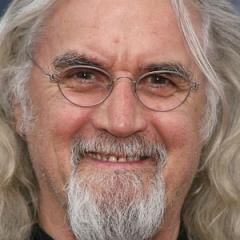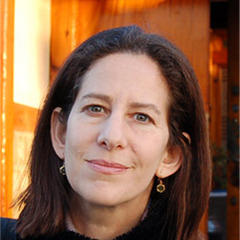Benjamin Whichcote Quotes - Page 2

Benjamin Whichcote, Anthony Tuckney (1753). “Moral and religious aphorisms [collected by J. Jeffery from the papers of B. Whichcote]. Now re-publ., with additions, by S. Salter. To which are added, Eight letters: which passed between dr. Whichcote, and dr. Tuckney”, p.78
He that neither knows himself nor thinks he can learn of others is not fit for company.
Benjamin Whichcote (1753). “Moral and religious aphorisms collected from the manuscript papers of the reverend and learned Doctor Whichcote; and published in 1703, by Dr. Jeffery. Now re-published, with very large additions, ... by Samuel Salter, ... To which are added, Eight letter”, p.182
None of us was born knowing or wise; but men become wise by consideration, observation, experience.
Benjamin Whichcote, Anthony Tuckney (1753). “Moral and religious aphorisms [collected by J. Jeffery from the papers of B. Whichcote]. Now re-publ., with additions, by S. Salter. To which are added, Eight letters: which passed between dr. Whichcote, and dr. Tuckney”, p.45
Benjamin Whichcote (1753). “Moral and religious aphorisms collected from the manuscript papers of the reverend and learned Doctor Whichcote; and published in 1703, by Dr. Jeffery. Now re-published, with very large additions, ... by Samuel Salter, ... To which are added, Eight letter”, p.38
Riches are but a means, or instrument; and the virtue of an instrument lies in its use.
Benjamin Whichcote (1753). “Moral and religious aphorisms collected from the manuscript papers of the reverend and learned Doctor Whichcote; and published in 1703, by Dr. Jeffery. Now re-published, with very large additions, ... by Samuel Salter, ... To which are added, Eight letter”, p.119
Take away the self-conceited, and there will be elbowroom in the world.
Benjamin Whichcote (1753). “Moral and religious aphorisms collected from the manuscript papers of the reverend and learned Doctor Whichcote; and published in 1703, by Dr. Jeffery. Now re-published, with very large additions, ... by Samuel Salter, ... To which are added, Eight letter”, p.179
Benjamin Whichcote, Anthony Tuckney (1753). “Moral and religious aphorisms [collected by J. Jeffery from the papers of B. Whichcote]. Now re-publ., with additions, by S. Salter. To which are added, Eight letters: which passed between dr. Whichcote, and dr. Tuckney”, p.52
Benjamin Whichcote, Anthony Tuckney (1753). “Moral and religious aphorisms [collected by J. Jeffery from the papers of B. Whichcote]. Now re-publ., with additions, by S. Salter. To which are added, Eight letters: which passed between dr. Whichcote, and dr. Tuckney”, p.147
Benjamin Whichcote (1753). “Moral and religious aphorisms collected from the manuscript papers of the reverend and learned Doctor Whichcote; and published in 1703, by Dr. Jeffery. Now re-published, with very large additions, ... by Samuel Salter, ... To which are added, Eight letter”, p.71
No man is greatly jealous who is not in some measure guilty.
Benjamin Whichcote (1753). “Moral and religious aphorisms collected from the manuscript papers of the reverend and learned Doctor Whichcote; and published in 1703, by Dr. Jeffery. Now re-published, with very large additions, ... by Samuel Salter, ... To which are added, Eight letter”, p.83
Good men study to spiritualize their bodies; bad men to incarnate their souls.
Benjamin Whichcote, Anthony Tuckney (1753). “Moral and religious aphorisms [collected by J. Jeffery from the papers of B. Whichcote]. Now re-publ., with additions, by S. Salter. To which are added, Eight letters: which passed between dr. Whichcote, and dr. Tuckney”, p.83
Benjamin Whichcote (1753). “Moral and religious aphorisms collected from the manuscript papers of the reverend and learned Doctor Whichcote; and published in 1703, by Dr. Jeffery. Now re-published, with very large additions, ... by Samuel Salter, ... To which are added, Eight letter”, p.44
Benjamin Whichcote (1753). “Moral and religious aphorisms collected from the manuscript papers of the reverend and learned Doctor Whichcote; and published in 1703, by Dr. Jeffery. Now re-published, with very large additions, ... by Samuel Salter, ... To which are added, Eight letter”, p.75
Benjamin Whichcote (1753). “Moral and religious aphorisms collected from the manuscript papers of the reverend and learned Doctor Whichcote; and published in 1703, by Dr. Jeffery. Now re-published, with very large additions, ... by Samuel Salter, ... To which are added, Eight letter”, p.122
Benjamin Whichcote, Anthony Tuckney (1753). “Moral and religious aphorisms [collected by J. Jeffery from the papers of B. Whichcote]. Now re-publ., with additions, by S. Salter. To which are added, Eight letters: which passed between dr. Whichcote, and dr. Tuckney”, p.55
There is nothing more unnatural to religion than contentions about it.
Benjamin Whichcote (1753). “Moral and religious aphorisms collected from the manuscript papers of the reverend and learned Doctor Whichcote; and published in 1703, by Dr. Jeffery. Now re-published, with very large additions, ... by Samuel Salter, ... To which are added, Eight letter”, p.128






